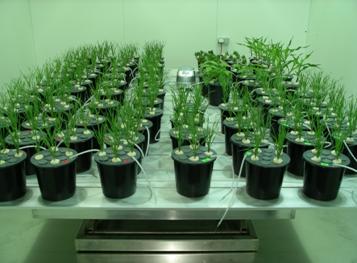Great discovery in plant genetics
Implemented by Faculty of Engineering and Natural Sciences professor Hikmet Budak, the 'EU-DROPs Project' was covered by the global scientific journal Nature. The journal discussed the strategy and significance of the project at length.
We talked to Hikmet Budak for our questions about the 'EU-DROPs Project.'

Can you talk about the nature and scope of the project?
The DROPS (DROught-tolerant yielding PlantS) Project is a joint platform of 15 partners from Europe, Australia and the United States. The objective of the project is to develop new genetic and genomic methods to improve the drought tolerance and water efficiency of three critical crops: corn, durum wheat and common or bread wheat. DROPS began in 2010 and will continue until 2015. The project has a budget of 5.9 million Euros. As SU, our role in the project is to enable the cultivation of drought-tolerant crops in the long term by identifying genomic zones and genes associated with drought tolerance, share this information with the worldwide scientific community to use in genetic and refinement studies. All genetic and phenotypic information gathered will be stored on databases and shared globally. The cultivation of new wheat varieties that are affected minimally by fluctuation in water availability under changing climatic conditions will make a vast contribution to sustainable production.

If you were to compare this SU project to others around the world, what are the differences and significant findings?
The project focuses on four important factors that determine drought tolerance and water efficiency. These are seed development failure; shoot structure and development; root structure and activitiy; and transpiration activity. The objective is to study these properties in natural variants and determine genomic zones that are associated with these properties and drought tolerance. We will use these genetically-transferred stable properties in these genotypes as parameters for estimating the drought tolerance of new genotypes to be produced. The findings of Europe-wide studies will be used in the production and development of new genotypes or varieties via a common network. This project is very wide in scope with the participation of 15 partners.
What are your expectations from the outcomes of the project?
We are working towards transferring four different genes to two species of wheat that are widely cultivated in Turkey, and testing these genotypes once the transfer is complete. We expect the new crops to be more tolerant against drought.